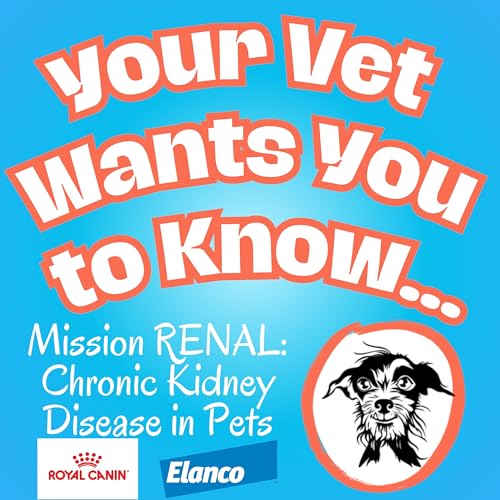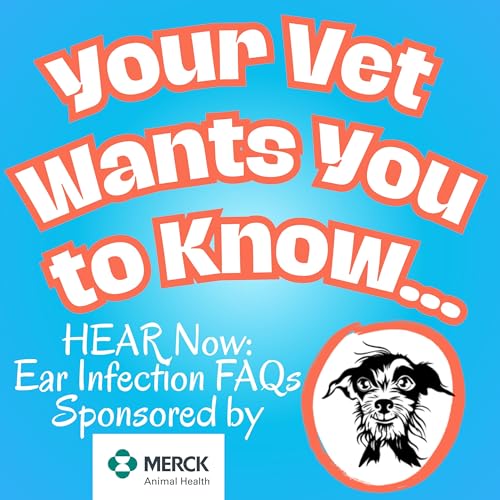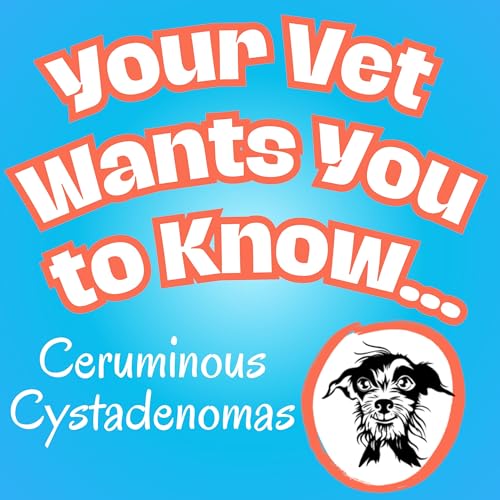Dog ear infections are frustrating, smelly, and painful—and often keep coming back. This episode is part of the HEAR NOW series (Help, Educate, Assess, Regulate), created in partnership with Merck Animal Health. In this two-part series, expert guest Dr. Christine McKinney, Merck Animal Health Small Animal Dermatology Specialist, joins to answer the most frequently asked questions about dog ear infections to give pet owners the clear, evidence-based information they need.
In Part 2 of our HEAR NOW series, we explain what brown discharge really means, why infections may not go away, the risks of untreated infections, and why home remedies can do more harm than good. Learn safe, effective treatments to help your pet.
-
Brown discharge can be normal wax, yeast, or bacteria—cytology is the only way to know.
-
Infections that don't clear may need longer treatment, stronger antiinflammatory medications, or better control of the primary disease like allergies.
-
Inflammation drives infection—managing allergies reduces recurrence.
-
Untreated infections can spread to the middle or inner ear, causing permanent damage.
-
Home remedies like vinegar may burn inflamed ears and risk hearing loss.
Resources & Links:
-
Episode page with pictures and video: HEAR Now: FAQs about Ear Infections in Dogs Part 2
-
Find a veterinary dermatologist near you: Specialist Search Here
-
Veterinary Skin and Ear (Los Angeles): Schedule Your Consult
Our vision is for Your Vet Wants You to Know to be a resource for veterinarians to improve client communication by introducing a discussion about a common topic during the vet visit, then directing the client to a reliable source of engaging, understandable, and accessible information.
By doing so, we strive for:
1) increased pet health literacy among pet owners,
2) improved partnership between clients and the veterinary team,
3) improved medical outcomes for pets, and
4) improved quality of life and efficiency for veterinarians.
Help support our mission through BUY ME A COFFEE: https://buymeacoffee.com/yourvet
Connect with Your Vet!
Instagram: https://www.instagram.com/yourvetwantsyoutoknow
Facebook: https://www.facebook.com/yourvetwantsyoutoknow
Facebook group: https://www.facebook.com/groups/yourvetwantsyoutoknow
Mometamax Single™ (gentamicin, posaconazole, and mometasone furoate otic suspension) - IMPORTANT SAFETY INFORMATION: Mometamax SingleTM is for otic use in dogs only. Do not use in cats. Mometamax Single should be administered by veterinary personnel. Do not use in dogs with known tympanic membrane perforation. The integrity of the tympanic membrane should be confirmed before administering the product. Reevaluate the dog if hearing loss or signs of vestibular dysfunction are observed during treatment. Do not use in dogs with known or suspected hypersensitivity to gentamicin, posaconazole, or mometasone furoate. Avoid contact with eyes. For complete instructions and safety information, refer to the product label.
Always talk with your veterinarian about whether this option is right for your pet.
 29 mins
29 mins 30 mins
30 mins 20 mins
20 mins 32 mins
32 mins 26 mins
26 mins 6 mins
6 mins 25 mins
25 mins 19 mins
19 mins

